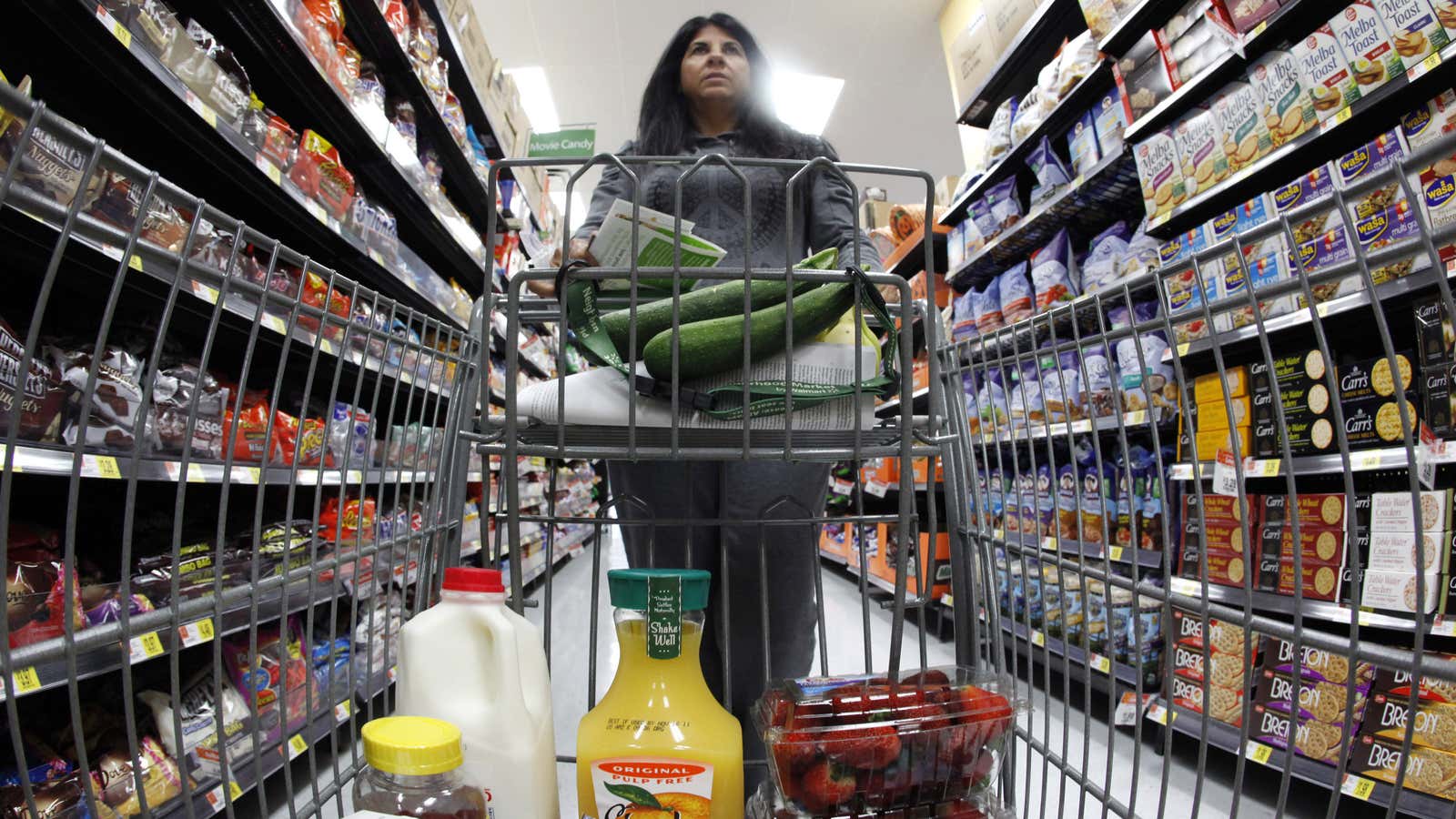Bringing your own reusable bag to the grocery store is the environmentally friendly thing to do. And new research shows that people like to reward themselves for their eco-conscious behavior with an unhealthy treat.
Researchers from Duke University and Harvard Business School studied the impact of bringing your own bag to the supermarket by reviewing shopping data and conducting their own experiments. They first looked at the purchasing behaviors of shoppers at a single California supermarket between 2005 and 2007 (before the state imposed a tax for using disposable bags), using data collected through loyalty cards. (Because the store gave a $0.03 credit for bringing bags, they were able to identify those shoppers.) They looked at the most frequent shoppers and focused on comparing habits within the same households—what these consumers bought with a reusable tote and what the same people bought when they forgot it at home. The big takeaway: Bringing a bag to the supermarket increases purchases of both organic and indulgent (re: junk) foods.
One possible explanation for the trend is that bringing a bag “primes” shoppers to buy organic foods because the bag makes them feel virtuous. Then they reward themselves with something indulgent, called “licensing.” But unlike the organic purchases, which are made as a swap for the conventional version, the indulgences are made as additional purchases.
Bringing a reusable tote bag, the researchers found, increased the likelihood of buying organic produce instead of conventional by 13.3%, and ups the chances of buying something indulgent by 7.3%.
The impact on spending was negligible. Shoppers spent on average an extra $.00154 or $.0191 per trip for organic produce, depending on whether they’re substitutions or an additional purchase, and $.026 for indulgent purchases assumed to be additional.
But not everybody engages in this behavior. The increase in indulgent purchases, the researchers found, is not seen in shoppers with dependents, potentially because parents are less inclined to treat themselves than non-parents, or because the virtuous feeling from bringing the bag is swallowed by the virtuosity of being a parent, and thus, the parents don’t feel the need to reward themselves for it.
